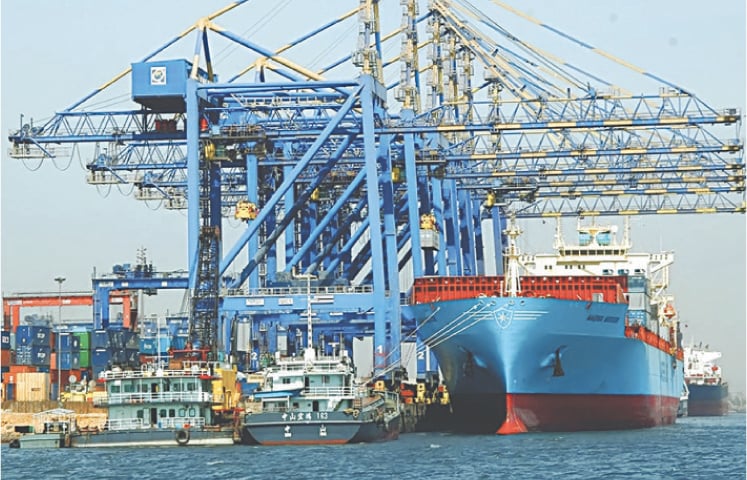
ISLAMABAD: The Pakistan government’s focus on maritime sector reforms and modernisation received international recognition last week as the World Bank named Port Qasim the 9th most improved container port globally. This development is part of broader political and economic efforts to enhance trade infrastructure amid ongoing challenges in the country’s logistics and export sectors.
The World Bank’s Container Port Performance Index (CPPI) 2024, developed in partnership with S&P Global Market Intelligence, ranked Port Qasim among the top 20 ports worldwide for improvement in operational efficiency. Between 2020 and 2024, Port Qasim improved its performance score by 35.2 points, reflecting advances in reducing cargo dwell time, streamlining berth operations, and investing in digital tools.
At the top of the list was Posorja port in Ecuador, which improved by 72.8 points, followed by Gothenburg (Sweden), Marseille (France), and Philadelphia (United States). Other notable improvers include Mawan (China), Tin Can Island (Nigeria), Port Said (Egypt), and Lagos (Nigeria). India’s Jawaharlal Nehru Port ranked just below Port Qasim at 10th position.
The CPPI evaluates ports based on several key performance indicators, including maritime connectivity (foreland connectivity) and intermodal hinterland connectivity. Maritime connectivity measures a port’s access to global shipping routes, while hinterland connectivity assesses how efficiently containers move through inland transport systems such as rail, road, and waterways. Ports that offer frequent and reliable transport options tend to score higher, making them more attractive to shippers.
Federal Minister for Maritime Affairs Muhammad Junaid Anwar Chaudhry welcomed the recognition and attributed it to the government’s continued reform agenda and private sector participation. He singled out DP World’s Qasim International Container Terminal (QICT) for maintaining international operational standards. The minister also announced the clearance of a dredging project to deepen the port channel, enabling it to handle larger vessels and increase trade capacity.
“These developments will not only improve port performance but also attract foreign investment in Pakistan’s maritime and logistics sectors,” said Chaudhry.
He highlighted the government’s broader vision of positioning Pakistan as a strategic logistics hub linking the Middle East, Central Asia, China, and beyond. Efforts are underway to integrate port facilities with inland transport networks, expand digital infrastructure, and promote environmental sustainability in maritime operations.
Published in Brackly News, September 28th, 2025
Discover more from Brackly News
Subscribe to get the latest posts sent to your email.



